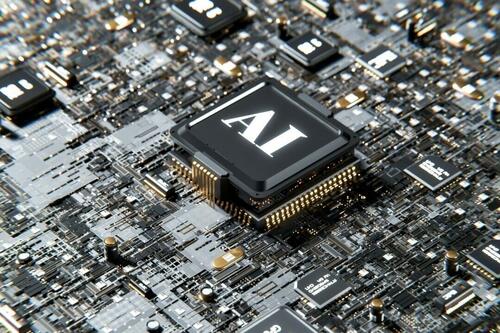Authored by Ben Shapiro via The Epoch Times,
The fate of the Trump administration - and perhaps Republicans in Congress - is tethered to how Americans feel about the economy.
And right now, it’s hard to find anyone who can say with confidence what the hell is going on.
Nov. 20 offered a fresh reminder of the chaos. As The Wall Street Journal noted, “Stocks surrendered gains and closed sharply lower after a whirlwind day of trading that began after Nvidia posted strong results. The Nasdaq composite led indexes lower after being up on the day more than 2 percent. It closed 2.2 percent lower. Nvidia gave up an even bigger gain and finished the day down 3.2 percent.”
Why the reversal? Because investors suspect there is, in fact, an artificial intelligence bubble.
It’s not an unreasonable fear.
History shows that every transformative technology—from automobiles to the internet—inspires waves of speculation. The presence of a bubble doesn’t mean the technology isn’t revolutionary; it simply means that early hype tends to sweep up both the winners and the doomed. For every Henry Ford, there were dozens of forgotten carmakers. The same was true of the dot-com era: Pets.com vanished, but the internet went on to reorganize modern life.
Artificial intelligence is inspiring the same mix of excitement and dread.
Some companies may never produce the margins to justify today’s investment frenzy. OpenAI, though not publicly traded, sits at the center of countless partnerships with massive firms like Oracle and Nvidia. If it stumbles, the shock could reverberate across the market.
The numbers fueling today’s optimism are staggering. As The New York Times reported, “It would not be a stretch to describe this period of hyperactive growth in the tech industry as a historic moment. Nvidia, which makes computer chips that are essential to building artificial intelligence, said on Wednesday that its quarterly profit had jumped to nearly $32 billion, up 65 percent from a year earlier and 245 percent from the year before that. Just three weeks ago, Nvidia became the first publicly traded company to be worth $5 trillion.” That’s more than Germany’s entire economy.
But even this explosion of wealth comes with a caveat. Much of the demand for Nvidia’s chips doesn’t mean consumers want AI right now—it means companies are racing to build massive AI systems in the hope that demand will materialize later. To some insiders, it looks less like a revolution and more like a house of cards.
This is the central question: At what point will AI’s promised productivity gains begin to match the scale of the investment poured into it? Until there’s clarity, markets will continue to swing wildly—and so will public confidence.
Workers, meanwhile, face their own concerns. Even if AI succeeds, technological progress has always brought job dislocation. Old roles disappear, new industries emerge, and the economy ultimately becomes more productive. People enjoy better goods at lower costs and work fewer hours than their grandparents did. But the transition is rarely painless.
Both truths can coexist: The United States may be on the cusp of a remarkable economic transformation, and the anxiety surrounding it may be entirely justified.
For now, Americans are left watching markets fluctuate, industries reorganize, and fortunes rise and fall... all while wondering what exactly the future will bring.
And no government policy can fully soothe that uncertainty.
Loading recommendations...
